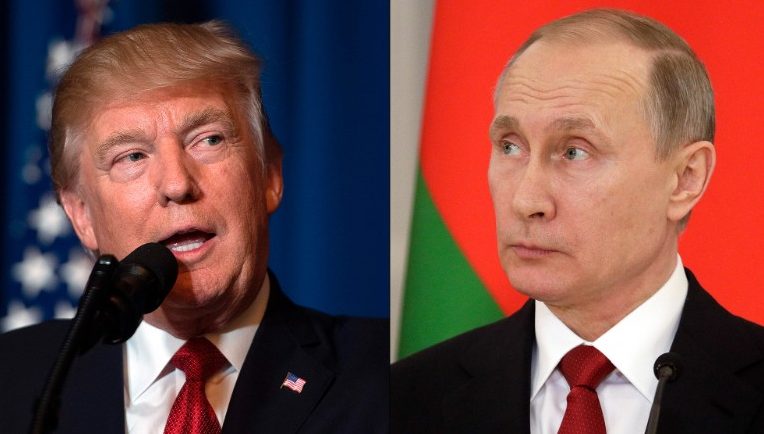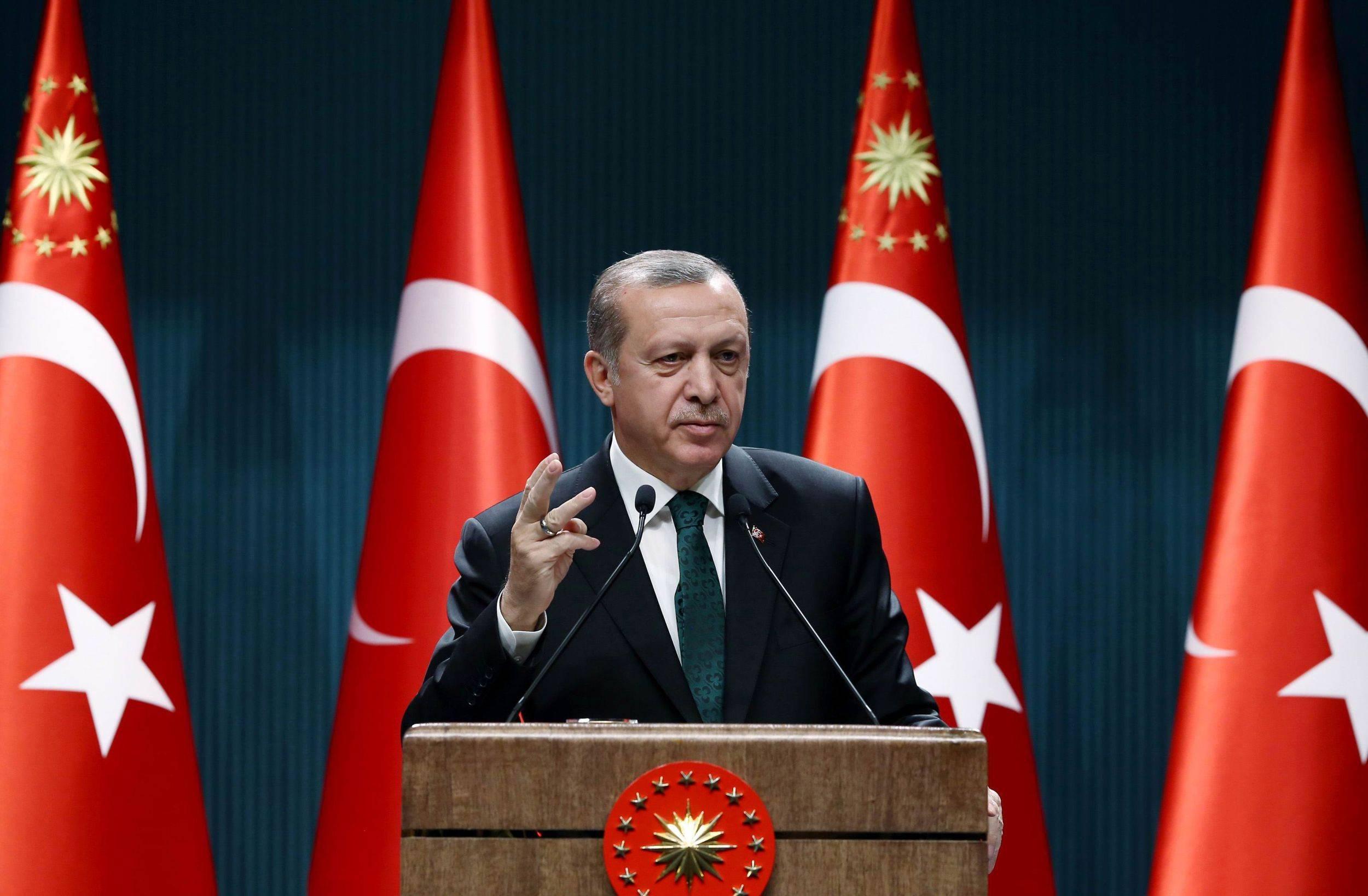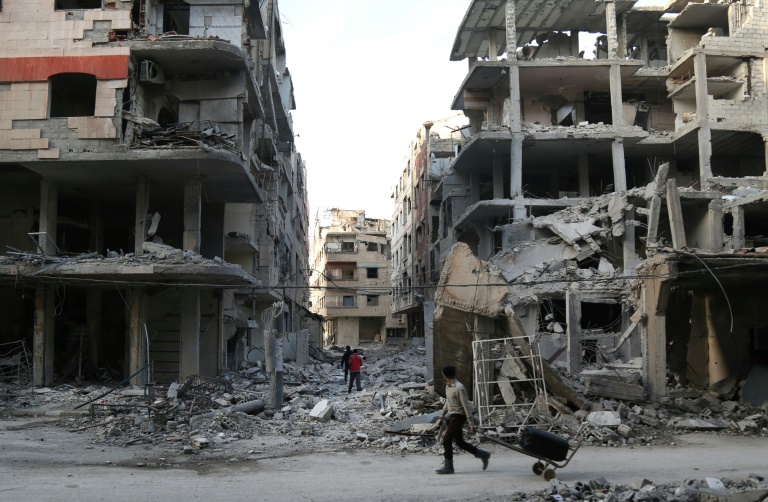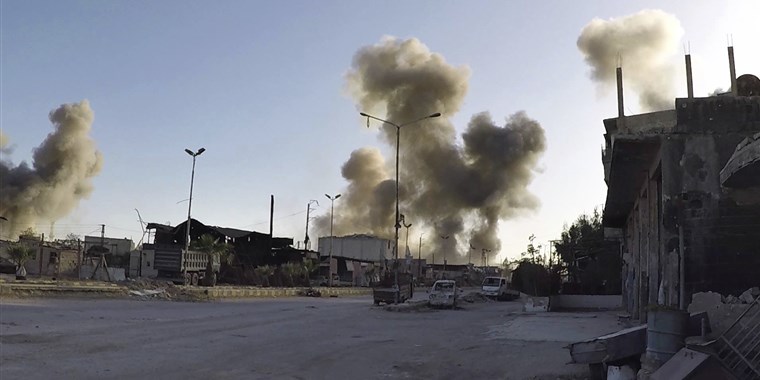An alleged chemical attack by the Syrian regime in a Damascus suburb of Douma on Monday drew an immediate and toxic reaction from Western countries.
President Donald J. Trump laid the blame at the feet of President Bashar al-Assad as well as his backers, Russia and Iran. Damascus, Moscow and Tehran framed the gas attack allegations as “fabricated.” Trump warned of a “big price to pay” for those responsible for the attack. The military response is imminent.
White Helmets, Syrian first responders who operate in rebel-held territories, said the civilians were targeted by “poisonous chlorine gas” late on Saturday.
“More than 500 cases — the majority of whom are women and children — were brought to local medical centers with symptoms indicative of exposure to a chemical agent,” according to a joint statement issued by the Syrian American Medical Society (SAMS) and the White Helmets.
The global outpouring of anger culminated after reports of chemical gas use in Douma emerged, as pent-up frustrations boiled over due to Syrian regime’s 7-week brutal offensive in the formerly rebel-held town of Eastern Ghouta, an assault that killed over a thousand civilians.
The European Union said the evidence points towards “yet another chemical attack by the regime” and urged Russia and Iran to prevent another one from happening. How the world, particularly the U.S., should respond to this tragedy?
Punishing the Assad regime with a limited military strike is a kneejerk reaction offered by allies of the Syrian opposition, a step former President Barack Obama was too timid to take. The possibility of a military strike similar to the one a year ago is running headlong into a barrage of questions whether or not such a response has a deterrent capability. It didn’t work out last year. So what is different now?
Since Obama’s famous red line promise, Syria’s use of chemical gas has become a painful public test of how far Washington will go to punish the Assad regime. How to make the American military response as punitive as possible while at the same time to stay out of the Syrian quagmire?
There are two options if the U.S. had already determined that a military response is necessary. First, the U.S., possibly in a joint military operation with other allies such as France, could conduct a limited yet painful military strike against the Syrian regime targets.
Second, the U.S. will form a coalition of countries that include Turkey, Gulf nations and some European countries such as U.K. and France, to unleash a massive military campaign against the Assad regime to significantly degrade its military capability.
If Washington chooses to go for a pinprick military retaliation, it will hardly make any meaningful difference. The Syrian regime needs to remember how Obama walked off his decision to punish Assad in 2013 and how limited Trump’s military strikes were in 2017 to catch a glimpse of what will happen if the regime uses it again.
At the first look, using chemical weapons and attracting international military response doesn’t make sense since the Syrian regime has been winning the war against almost depleted rebels. We don’t know if all chemical weapons remain under the thumb of Assad himself or some rogue elements within the Syrian regime have access to them as well. But it is more than clear that a limited military strike doesn’t have any deterrence capability.
Aside from the obvious fact that surgical missile strikes over the gas attack are blind to the massive suffering across the country, it will further invite increased military and financial support by Russia and Iran.
The second option — a massive military response — will result in a failed Syrian state and will create huge vacuums of power across the country. With the absence of meaningful rebel force, it may revive radical Islamist groups to take advantage of the failed Syrian state. The civil war will continue for some years and the death toll will multiply.
To sum up, the U.S. is facing a difficult quandary:
Limited military response: Increased support by Russia and Iran. No deterrence. Continuation of the civil war.
Massive military response: Failed Syrian state. Power vacuums. Continuation of the civil war.
Diplomacy Will Help
Hardly does anyone disagree that there is no military solution to the settlement of the Syrian conflict. What about giving diplomacy a chance?
The fact is, there is no reason why the Syrian regime will accept U.S. terms in possible diplomacy talks. In fact, the U.S. is absent from the most intense peace talks over Syria’s future. The negotiations are spearheaded by three countries — Turkey, Russia, and Iran.
For the past two years, while the U.S. only focused on a narrow goal of eliminating ISIS, the Assad regime, with the help of Russia and Iran, expanded its territory (Obama remained indifferent to Russian military involvement in Syria because he thought Russian economy would collapse due to its war in Syria). As real players on the ground, Russia, Iran, and Turkey have more say in Syria’s future than Washington.
Here is a possible solution: The U.S. may form a large-scale military coalition that includes countries from the Middle East and Europe. For several months, the U.S. can keep increasing the pressure through constant saber-rattling and military threats. American, British and French navy may encircle Syria and draft a military campaign that would eliminate the Syrian regime. Damascus and Moscow will have no option but agree to solve the Syrian conflict through political negotiations.
No matter how misguided Obama’s 2013 decision was in believing that the Assad regime would get rid of all chemical weapons (let alone the fact that they can always produce more), it gives an important insight into how such saber-rattling can help revive diplomacy again.
It was after days of high tensions and an imminent military strike by the U.S. that Moscow offered a political solution. There is no reason why the Syrian regime won’t agree now to diplomacy to avoid a crippling military campaign by the U.S. and allied nations. Under today’s circumstances, a credible military threat would work more than any small or large-scale military attack.
Disclaimer: The views and opinions expressed here are those of the author and do not necessarily reflect the editorial position of The Globe Post.



















